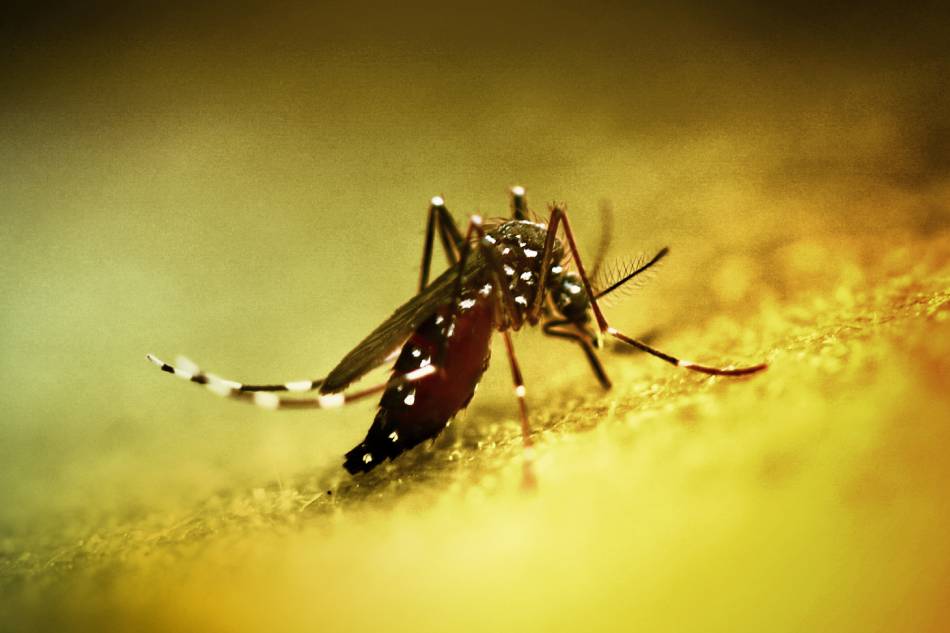Palawan is only province not free of malaria - DOH | ABS-CBN
ADVERTISEMENT

Welcome, Kapamilya! We use cookies to improve your browsing experience. Continuing to use this site means you agree to our use of cookies. Tell me more!
Palawan is only province not free of malaria - DOH
Palawan is only province not free of malaria - DOH
Davinci Maru,
ABS-CBN News
Published Feb 07, 2023 01:08 PM PHT
|
Updated Feb 07, 2023 02:36 PM PHT
MANILA — Palawan is the only province in the Philippines that is not yet free of malaria, the Department of Health said Tuesday.
MANILA — Palawan is the only province in the Philippines that is not yet free of malaria, the Department of Health said Tuesday.
"At this current time, 80 out of the 81 provinces in the country are all malaria-free already. Iisa nalang po at 'yun ang Palawan," DOH officer-in-charge Maria Rosario Vergeire said in a press briefing.
"At this current time, 80 out of the 81 provinces in the country are all malaria-free already. Iisa nalang po at 'yun ang Palawan," DOH officer-in-charge Maria Rosario Vergeire said in a press briefing.
Four provinces - Oriental Mindoro, Rizal, Aurora and Cotabato - were declared free from malaria last year, she said.
Four provinces - Oriental Mindoro, Rizal, Aurora and Cotabato - were declared free from malaria last year, she said.
"Ang criteria nito is the absence of local transmission of malaria for the past 5 years," Vergeire said.
"Ang criteria nito is the absence of local transmission of malaria for the past 5 years," Vergeire said.
ADVERTISEMENT
The health official said they are working together with the local government of Palawan to eliminate malaria.
The health official said they are working together with the local government of Palawan to eliminate malaria.
Malaria is contracted from a bite of an infective female Anopheles mosquito that breeds in rivers and lakes, the DOH said. It can also be transmitted by blood transfusion, and possibly mother to child before and or during birth.
Symptoms usually start approximately 9 to 14 days after the bite of an infective mosquito. However, in some types of malaria, the symptoms may appear 1 to several months after the infective mosquito bite.
Malaria is contracted from a bite of an infective female Anopheles mosquito that breeds in rivers and lakes, the DOH said. It can also be transmitted by blood transfusion, and possibly mother to child before and or during birth.
Symptoms usually start approximately 9 to 14 days after the bite of an infective mosquito. However, in some types of malaria, the symptoms may appear 1 to several months after the infective mosquito bite.
The symptoms include high fever, headache, chills and shivers, nausea and vomiting. In severe form, it may include severe vomiting and diarrhea, generalized convulsion, delirium and impaired consciousness, followed by coma and possibly death.
The symptoms include high fever, headache, chills and shivers, nausea and vomiting. In severe form, it may include severe vomiting and diarrhea, generalized convulsion, delirium and impaired consciousness, followed by coma and possibly death.
Key measures for malaria prevention are awareness of endemic areas, bite prevention through wearing of long sleeved clothes and using of insect repellants and mosquito nets (preferably insecticide-treated), and prophylactic treatment when travelling to endemic areas.
Key measures for malaria prevention are awareness of endemic areas, bite prevention through wearing of long sleeved clothes and using of insect repellants and mosquito nets (preferably insecticide-treated), and prophylactic treatment when travelling to endemic areas.
If symptoms of malaria are observed, the DOH urged the public to seek immediate medical consultation.
If symptoms of malaria are observed, the DOH urged the public to seek immediate medical consultation.
Courtesy of DOH
ADVERTISEMENT
ADVERTISEMENT



